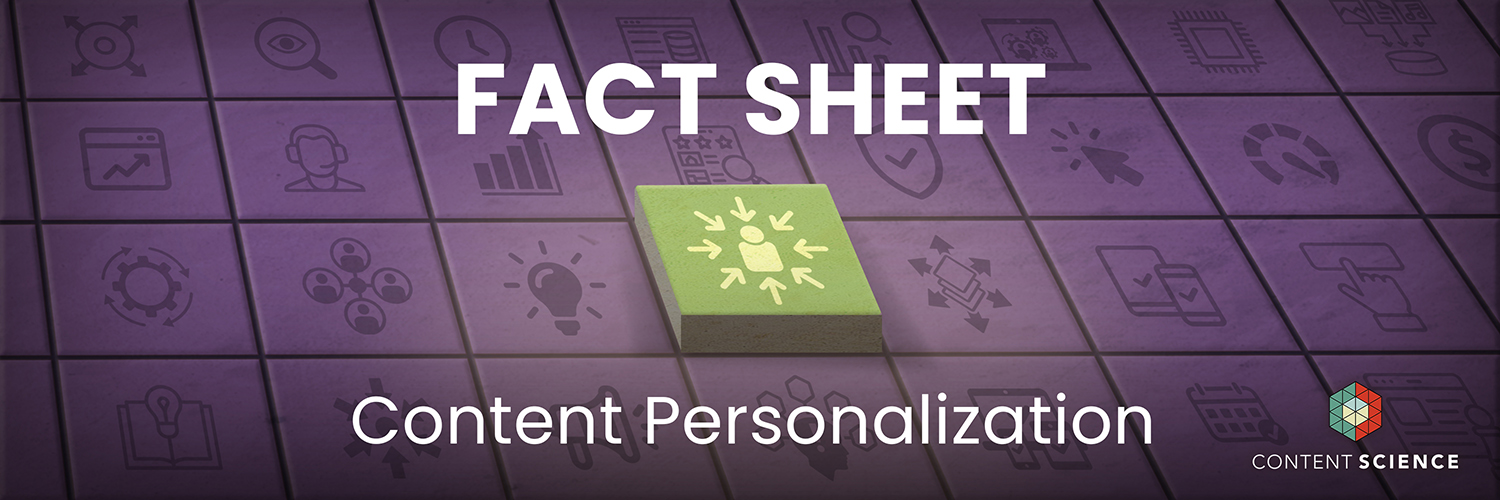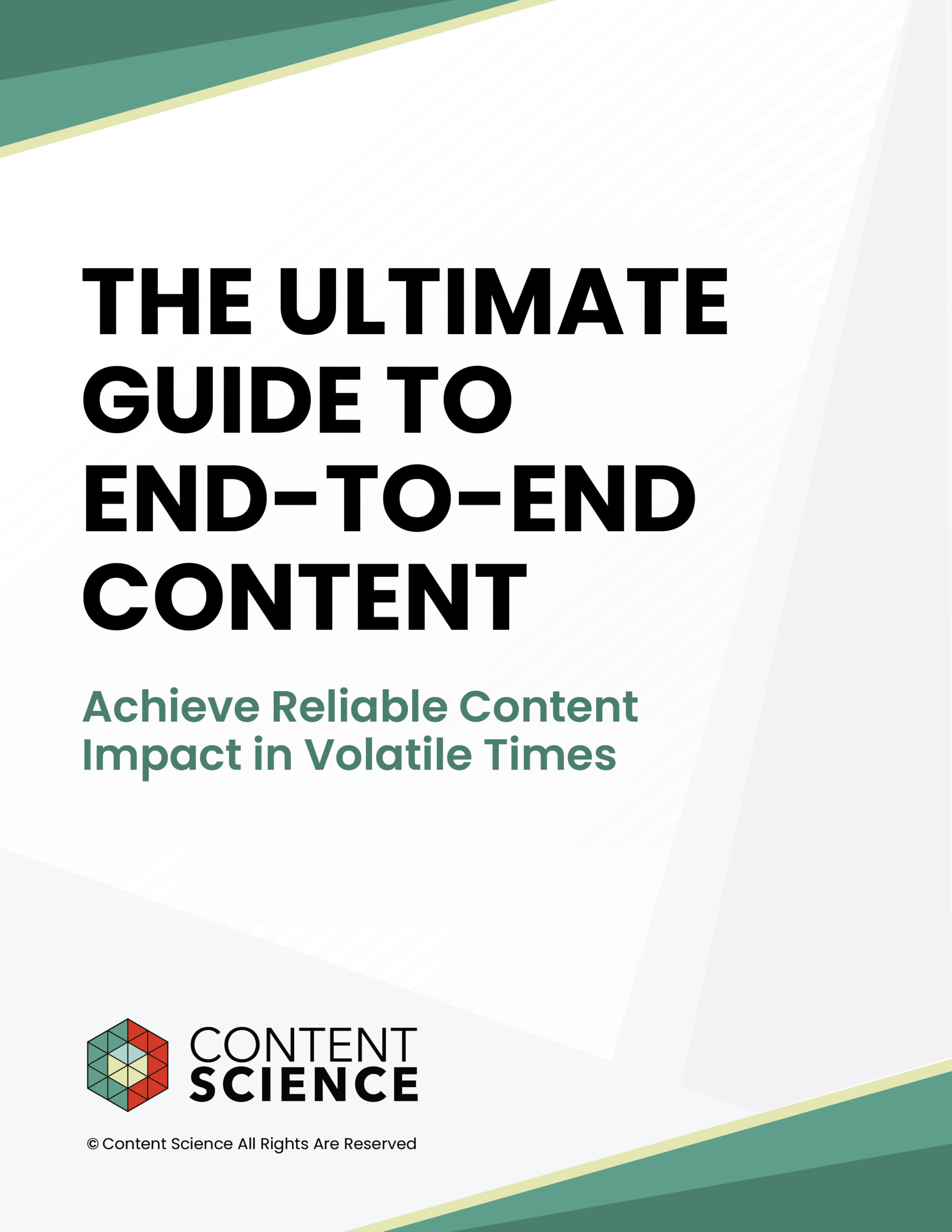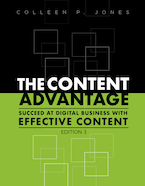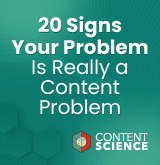
Let’s start by reviewing the progress made with content personalization. Content Science Founder Colleen Jones explains, “I remember talking about it in 2000 as a priority for a big website redesign. But the right technology and the content architecture weren’t there to support it. Also, users were not quite ready. Users were not using the web enough to generate enough behavioral data to drive personalization, and they often weren’t willing to share other kinds of data.”
Fast-forward to 2024, and businesses envy the level of personalized content Amazon and Apple have reached. Personalization matters more than ever. Consumers don’t just want personalization, they demand it. “The benefits of personalization both to business and users tend to outweigh the drawbacks, so personalization will not go away,” Jones explains.
A recent Salesforce survey found that 73% of customers expect better personalization as technology advances. — Salesforce
And how are we doing with customer privacy concerns compared to 2000?
The word that best describes the privacy/personalization tradeoff is ‘resignation.’ Meaning that regardless of the type or quality of the supposed benefits we received, Americans widely believe that there is little to nothing we can do to stop the wholesale Hoovering of our private data or the use and misuse of it by those entities that gather it. And they’re not entirely pissed off—yet. — Michael Hinshaw “Smart Customers, Stupid Companies: Why Only Intelligent Companies Will Thrive, and How to Be One of Them”
That ‘yet’ could arrive sooner than we think. Pew Research notes an uptick in customer anxiety around privacy issues and in response, an increase in marketers exceeding privacy standards and laws. Their most recent research report notes that “81% say they feel very or somewhat concerned with how companies use the data they collect about them.” To wit:
- 73% feel they have very little or no control over the data collected about them by companies.
- 67% say they understand little to nothing about what companies are doing with their personal data. — Pew Research
To further complicate matters, organizations must be aware of both personalization and customization opportunities. Nielsen Norman Group explains: “Customization gives control to the user and personalization gives control to the site. Both can enhance users’ experiences, but only when carefully implemented.”
What Is Content Personalization?
“Personalized experiences = Creating, managing, and delivering contextually relevant experiences that speak to your customers on a personal level, helping you deepen relationships and meet rising expectations.”—Adobe
Personalization tools rely on advanced analytics to build an understanding of a specific customer and their evolving needs. As explained by Bain, “Marketing and innovation teams then use the data to create unique and dynamic messages, offerings and experiences. They send personalized content at the ideal time to engage the customer, or adapt the content to the customer profile on a website or mobile app. Personalization engines thus can enhance the customer experience, make advertising more effective and increase retention, loyalty and sales.”
Crafts retailer Michaels Stores has gone from personalizing 20 percent of its email campaigns to personalizing 95 percent. This has lifted the click-through rate for SMS campaigns by 41 percent and email campaigns by 25 percent. — McKinsey
Here’s an example of how we’ve implemented personalization at Content Science Review.

When marketers personalize across more channels, they are customizing their messaging and interactions to what customers want — and where they want it.
Doing this creates a more consistent experience for customers, strengthening brand relationships and making it more likely they keep engaging and converting. — Salesforce
According to Deloitte, “It’s no secret that personalization drives engagement. Today’s marketers also know that AI can power hyper-personalization. Research shows that a well-executed, hyper-personalized marketing strategy can deliver 8x the return on investment (ROI) and lift sales by 10% or more.”
Scaling is a concern for many aspects of content strategy, especially personalization. Amazon is one of few companies that excels at offering personalized recommendations, and consumers are becoming conditioned to want this kind of personalization in all aspects of their lives, including streaming music, movies, TV, and more.
Gartner points out, “Personalizing even a single aspect of the customer experience, such as marketing, takes sustained investments in customer data and analytics—including spending on data management and analytic tools, hiring the right analytical talent, and developing or revamping marketing processes. To ensure success, rightsize your personalization efforts by exercising the minimum data requirements for relevant messaging.”
Benefits + Results of Personalizing Content
89% of leaders believe personalization is crucial to their business’ success in the next three years. — Segment
58% of manufacturing leaders planned to increase AI spending in 2024, down from 93% in 2023. — CIO Magazine
73% of business leaders agree—AI adoption will fundamentally change personalization and marketing strategies. — Segment
The results from personalization efforts speak for themselves. McKinsey reports that “companies that personalized experiences drive up both customer loyalty and a company’s gross sales. Companies with faster growth rates derive 40% more of their revenue from personalization than their slower growing counterparts.”
Personalization can also aid in hiring the best content team members and requires telling a candidate why you’re contacting them. “You have a great background” is the same line a dozen other recruiters have used that week. Explaining why s/he has a great background, and how it aligns with the job and company is a much more personalized (and productive) way of reaching out.—Forbes
“Younger consumers, especially, crave personalization and have come to expect it. GenZ values personalized service 2.5 times more than Baby Boomers do, suggesting that personalization will become increasingly important in the future.” — McKinsey
Challenges to Content Personalization
Obviously, one of the most challenging aspects of personalization is respecting consumer privacy. As McKinsey notes, “According to a 2022 survey, 85 percent of customers say that knowing a company’s data privacy policies is important before making a purchase.” High-profile data breaches have made privacy a concern for both consumers and brands.
There is light on the horizon, however, for companies looking to engage in personalization without alienating consumers over privacy issues. According to Salesforce, privacy is becoming less challenging for marketers, allowing them to comply with regulations and balance personalization with customer comfort more easily than in years past.
While ‘overpersonalization’ can easily be perceived as creepy, going too far with personalization can actually result in homogeneous experiences for users. “Placing users’ interests into a narrow segment can cause content to feel boring and even dated,” Nielsen Norman Group states.
Finally, personalization also requires a commitment to agile ways of working through teams that include data scientists, engineers, and analytics translators who can communicate business goals to delivery teams and translate the impact of decisions to the business. The ability to recruit and retain relevant tech talent will be vital for any organization seeking to develop cutting-edge personalization capabilities.
“A successful personalization program requires cross-disciplinary project teams—and hence, a commitment to agile management. Teams should be organized around specific customer segments or journeys and should excel in creative, collaborative problem solving.”—McKinsey
Events, Resources, + More
The Ultimate Guide to End-to-End Content
Discover why + how an end-to-end approach is critical in the age of AI with this comprehensive white paper.
The Content Advantage Book
The much-anticipated third edition of the highly rated book by Colleen Jones is available at book retailers worldwide. Learn more!
20 Signs of a Content Problem in a High-Stakes Initiative
Use this white paper to diagnose the problem so you can achieve the right solution faster.
Upskill with Content Science Academy
Training for modern content roles through on-demand certifications + courses or live workshops.







Comments
We invite you to share your perspective in a constructive way. To comment, please sign in or register. Our moderating team will review all comments and may edit them for clarity. Our team also may delete comments that are off-topic or disrespectful. All postings become the property of
Content Science Review.